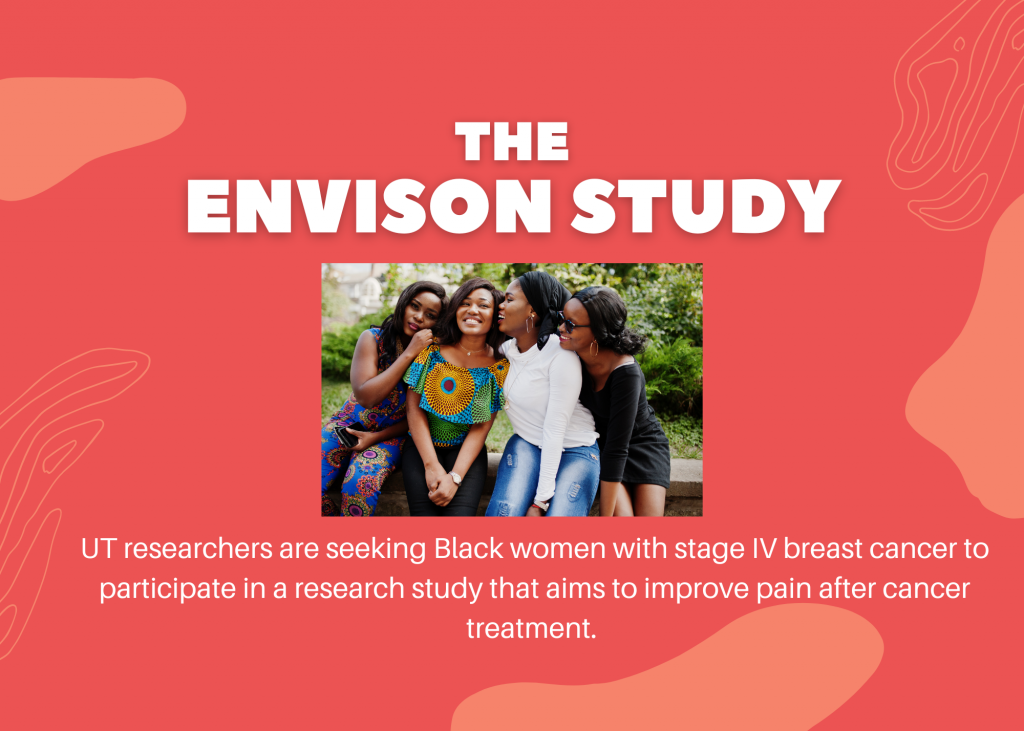Thank you for your interest. The Envision research study is no longer recruiting participants.
Research Purpose:
The purpose of this study is to translate a promising in-person hypnosis intervention for advanced cancer pain into a culturally appropriate, remotely delivered hypnosis intervention for pain in Black women with advanced cancer. This study has been developed for women diagnosed with Stage IV breast cancer with a life expectancy of 6 months or more who are open to listening to hypnotic relaxation recordings.
Importance:
Pain is one of the most common and bothersome symptoms reported by advanced breast cancer survivors. Having advanced cancer is associated with greater pain and less adequate pain management. Black women with breast cancer present more often with advanced cancers than their white counterparts. Additionally, the risk for inadequate pain management is two times higher for minorities when compared to their white counterparts.
Time Commitment:
- 1 virtual consent and baseline visit (50 min)
- 1 virtual education visit (up to 50 min)
- 1 virtual visit each week (weeks 1-5, 15 min each)
- 1 end of study interview (week 6, 60 min)
- Daily at-home practice, weeks 1-6 (20 min sessions)
- Weekly online surveys (part of virtual visits mentioned above)
Compensation:
Participants will be compensated for their participation in this research study and may receive a total of up to $90 in the form of gift cards. Compensation will be prorated at $45 each time virtual visits and surveys are completed at weeks 4 and 6.
Eligibility:
To participate, you must…
- Be at least 18 years old.
- Be able to read and write in English.
- Diagnosed with Stage IV breast cancer with life expectancy of 6 months or more.
- Be able to complete questionnaires on own or with assistance.
- Report cancer-related pain as ≥4 on a numeric pain rating scale of 0-10 with 0 being “no
pain” and 10 being “the worst it can be” for the past month or more. - Able to provide written informed consent.
- NOT have a diagnosis of major depressive disorder or acute anxiety
disorder per the medical record or self-report in the past 2 years. - NOT have a serious psychological illness, specifically psychoses,
schizophrenia, or borderline personality disorder per the medical record. - NOT be enrolled in hospice.
- NOT be using hypnosis for any reason.
More studies will be added as they become available.
